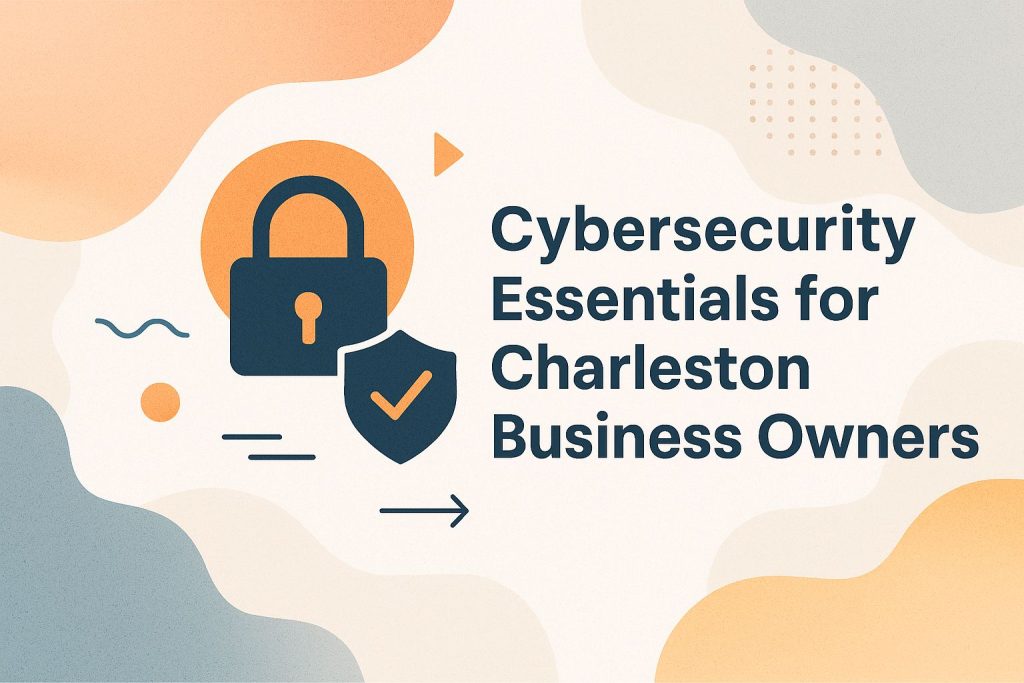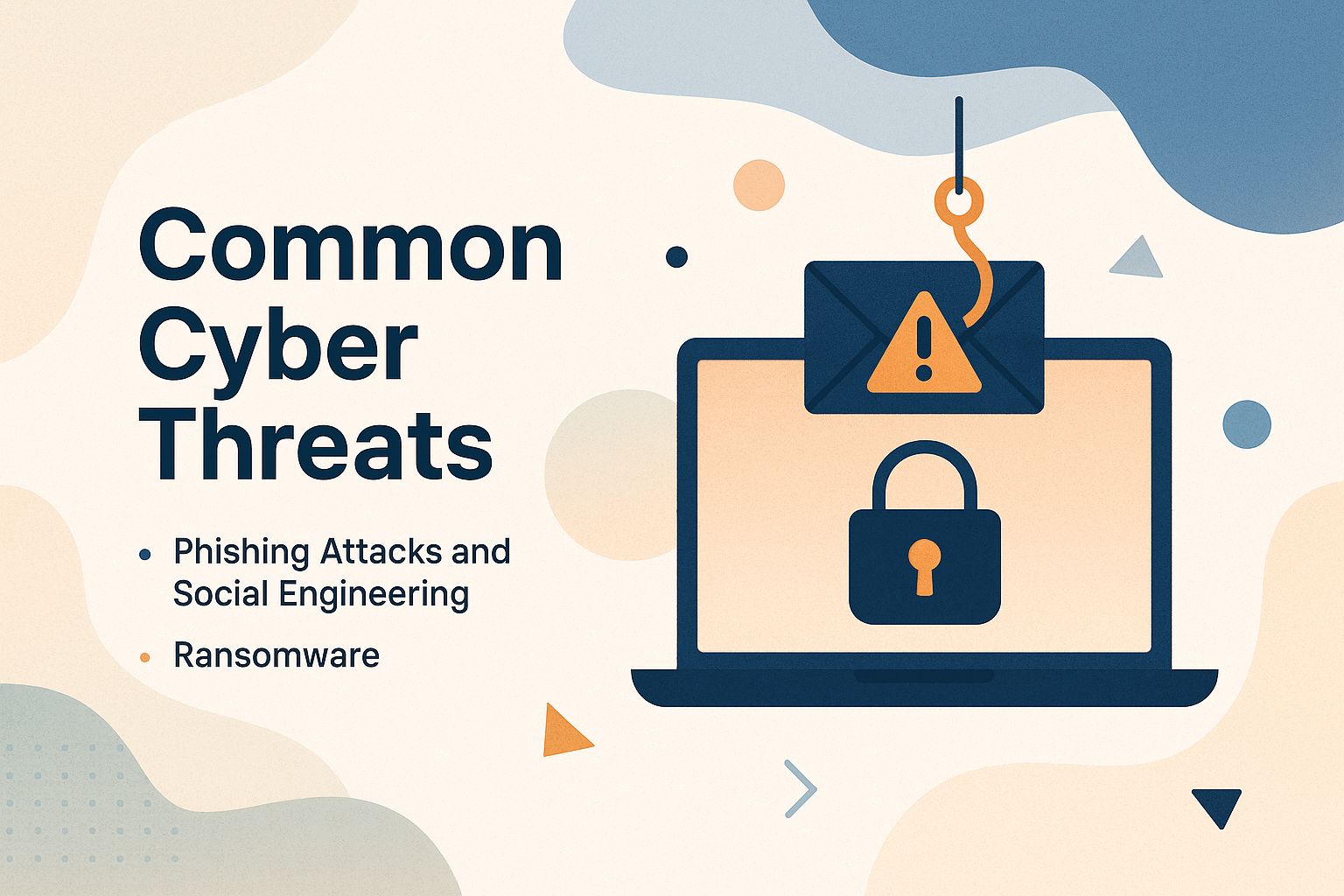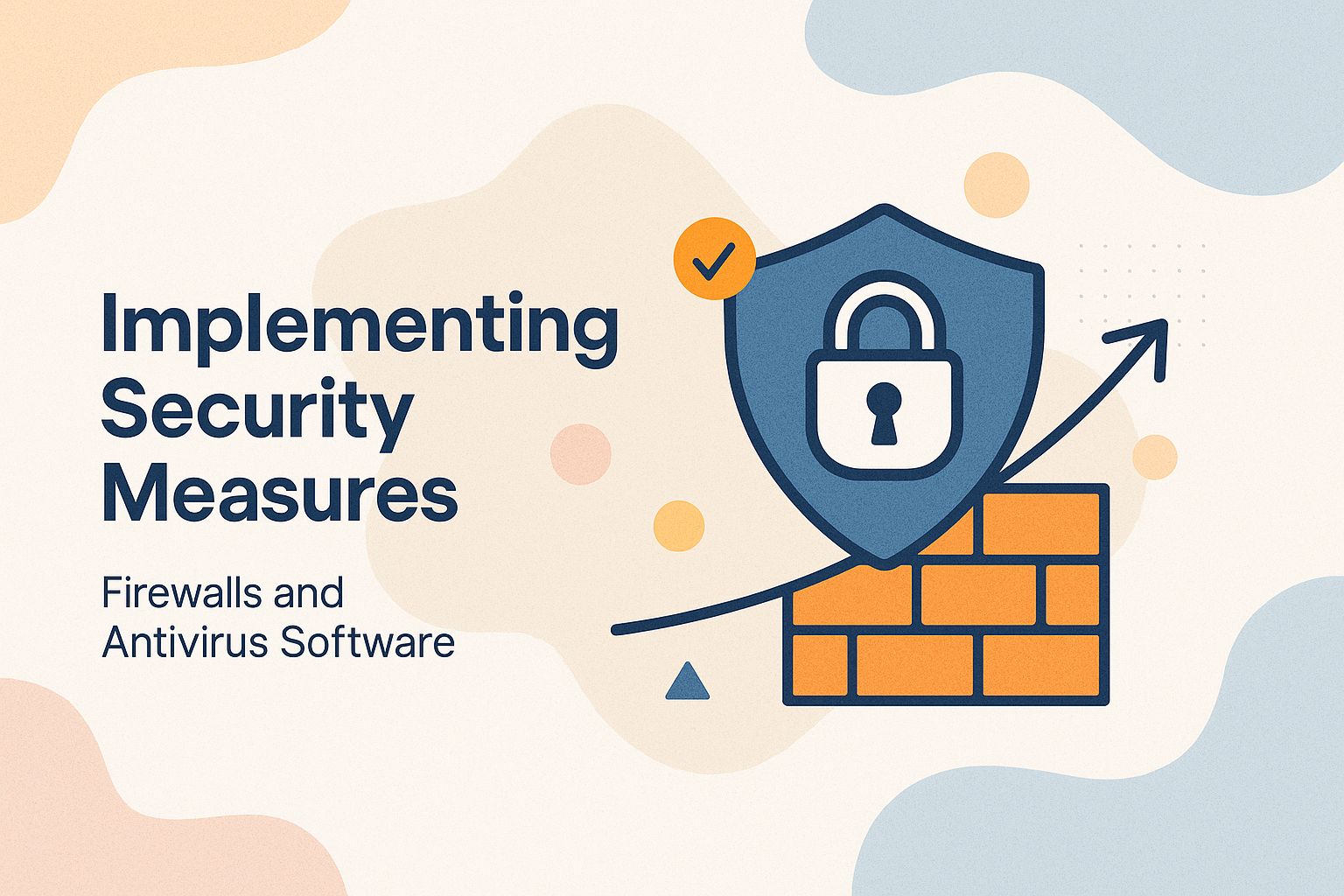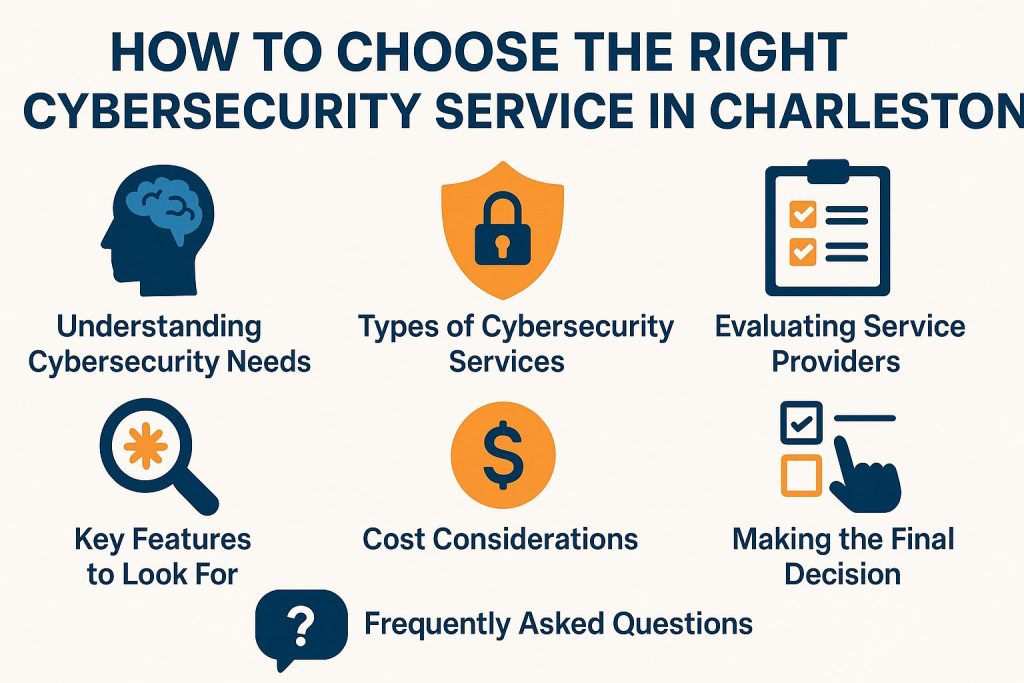Cybersecurity Essentials for Charleston Business Owners

Phishing attacks and ransomware are rising. Business owners must understand cybersecurity essentials. This comprehensive guide delves into common threats, best practices for cyber hygiene, and effective security measures. By exploring employee training and incident response strategies, Charleston’s businesses can enhance their resilience against ever-evolving cyber dangers. The journey toward robust cybersecurity starts here.
Common Cyber Threats
Understanding common cyber threats is essential for Charleston business owners, as each poses distinct risks that can significantly affect operations, impact data protection, and damage reputation. Incorporating cybersecurity best practices into your business strategy can help mitigate these threats and safeguard your company’s assets.

Phishing Attacks and Social Engineering
Phishing attacks and social engineering cause more than 80% of security incidents. They frequently target employees with fake emails aimed at stealing sensitive information. To combat this escalating threat and enhance cybersecurity resilience, organizations should adopt robust email filtering tools such as Proofpoint or Barracuda, which can significantly diminish the number of phishing attempts that reach employee inboxes.
These tools leverage machine learning to detect suspicious patterns and block malicious emails before they can cause damage. For instance, Proofpoint has demonstrated the capability to reduce phishing incidents by up to 99%.
Additionally, regular cybersecurity training for employees on recognizing phishing attempts is crucial for effective prevention and enhancing cybersecurity awareness. A notable incident in 2020 involving Twitter highlighted this necessity, as attackers gained access to accounts through a phishing scam that targeted employees, underscoring the importance of maintaining vigilance against such threats.
Ransomware
In 2021, ransomware attacks caused $20 billion in damages worldwide. They severely affect organizations by encrypting critical data and demanding ransoms. A prominent example highlighting the importance of incident response is the Colonial Pipeline attack, which required a ransom of $4.4 million and caused significant disruptions to fuel supply across the Eastern United States.
Recovery costs frequently surpass the ransom amounts, averaging approximately $1.85 million, which includes expenses related to downtime and data recovery.
To mitigate these risks and ensure effective risk management, businesses should implement robust cybersecurity measures, including:
- Regularly back up data.
- Utilizing endpoint protection tools such as Sophos or Malwarebytes to enhance network security,
- Conducting employee training on phishing risks.
By adopting these proactive strategies, organizations can significantly reduce the likelihood of becoming victims of such attacks and effectively safeguard their operations.
Best Practices for Cyber Hygiene
Implementing security best practices for cyber hygiene can significantly reduce an organization’s vulnerability to cyber threats while promoting a culture of security awareness and compliance.
Two critical steps that organizations should prioritize include utilizing strong password managers, such as LastPass or 1Password, for effective password management, which securely store and generate complex passwords. Additionally, enabling two-factor authentication (2FA) across all accounts provides an extra layer of security.
Regular software updates are essential. Approximately 70% of breaches occur due to known vulnerabilities. Organizations should create a schedule for these updates to ensure that all systems and applications remain current.
This proactive approach not only protects against potential exploits but also fosters a security-conscious mindset and enhances information security throughout the organization.
Implementing Security Measures
To strengthen their defenses, businesses should implement robust security measures that serve as the initial line of defense against cyber threats. For those interested in enhancing their cybersecurity framework, exploring our comprehensive IT Security Services can provide valuable insights and solutions.

Firewalls and Antivirus Software
Firewalls and antivirus software are essential for IT security. The global firewall market will reach $12 billion by 2026. Firewalls can be categorized into two main types: hardware and software. Hardware firewalls are positioned between the network and the internet, providing robust protection, while software firewalls operate on individual devices, managing internal security.
For antivirus solutions, some leading options include:
- Norton, priced at approximately $39.99 per year, which offers comprehensive malware protection and supports multiple devices.
- Bitdefender, available for around $29.99 per year, is noted for its impressive 99.9% detection rate, making it an excellent choice for users focused on effective threat detection.
Using both firewalls and antivirus software is crucial. This is part of a defense-in-depth strategy.
Employee Training and Awareness
A well-trained workforce enhances an organization’s cybersecurity. Ongoing training can reduce phishing risks by as much as 70%.
To establish an effective employee training program, several key components should be considered:
- Use training platforms like KnowBe4. It costs $120 per user per year and offers interactive sessions to boost security awareness.
- Incorporate regular threat intelligence and threat simulations every quarter to ensure employees are equipped to identify phishing attempts.
- Track metrics, such as the number of security incidents before and after training, to evaluate the program’s effectiveness.
Organizations often see fewer security breaches. Employees also feel more confident handling suspicious emails, which is crucial in minimizing downtime and boosting growth, as highlighted in our discussion on 24/7 IT Support. This dual approach fosters a more vigilant workforce and enhances the overall security culture within the organization.
Incident Response Plan
An effective incident response plan minimizes damage from cyber incidents. Companies that respond quickly save an average of $1.2 million through effective incident response measures. Key components of an incident response plan include predefined roles, communication strategies, and regular drills.
Specific team members should be assigned to responsibilities such as incident detection, threat detection, analysis, and recovery. Implementing tools like PagerDuty for incident management can enhance response coordination.
Regular drills should be conducted to simulate incidents and validate the effectiveness of the security protocols; organizations should aim for at least quarterly reviews and updates based on evolving threats and lessons learned. This proactive approach keeps the organization prepared and quick to respond to potential cyber threats.
Frequently Asked Questions
What are the top cybersecurity essentials that Charleston business owners should prioritize?
Charleston business owners should prioritize strong password policies, regular software updates, secure backups, and employee training. They should also use antivirus software and secure network connections.
Why is it important for Charleston business owners to have strong password policies?
Strong password policies prevent unauthorized access to sensitive information. They ensure secure access to networks.
How often should Charleston business owners update their software and install patches?
Charleston business owners should update their software and install patches on a regular basis, ideally as soon as they become available to enhance vulnerability management. This can help prevent vulnerabilities and protect against cyber attacks.
What should Charleston business owners do in the event of a cyber attack?
If a cyber attack occurs, Charleston business owners should immediately disconnect from the internet and contact their IT department or a trusted managed security services provider. They should also follow their data backup and recovery plan to minimize potential damage and quickly resume operations.
How can employee cybersecurity training benefit Charleston businesses?
Employee cybersecurity training raises awareness about cyber threats. It teaches employees how to identify and prevent attacks, fostering a culture of cybersecurity awareness. This can significantly reduce the risk of a successful cyber attack and protect the business’s sensitive information.
What measures should Charleston business owners take to secure their network connections?
To secure network connections, Charleston business owners should use firewalls. They should enable encryption. They must regularly monitor network traffic. They must restrict access to sensitive data and ensure only authorized personnel can access networks.




